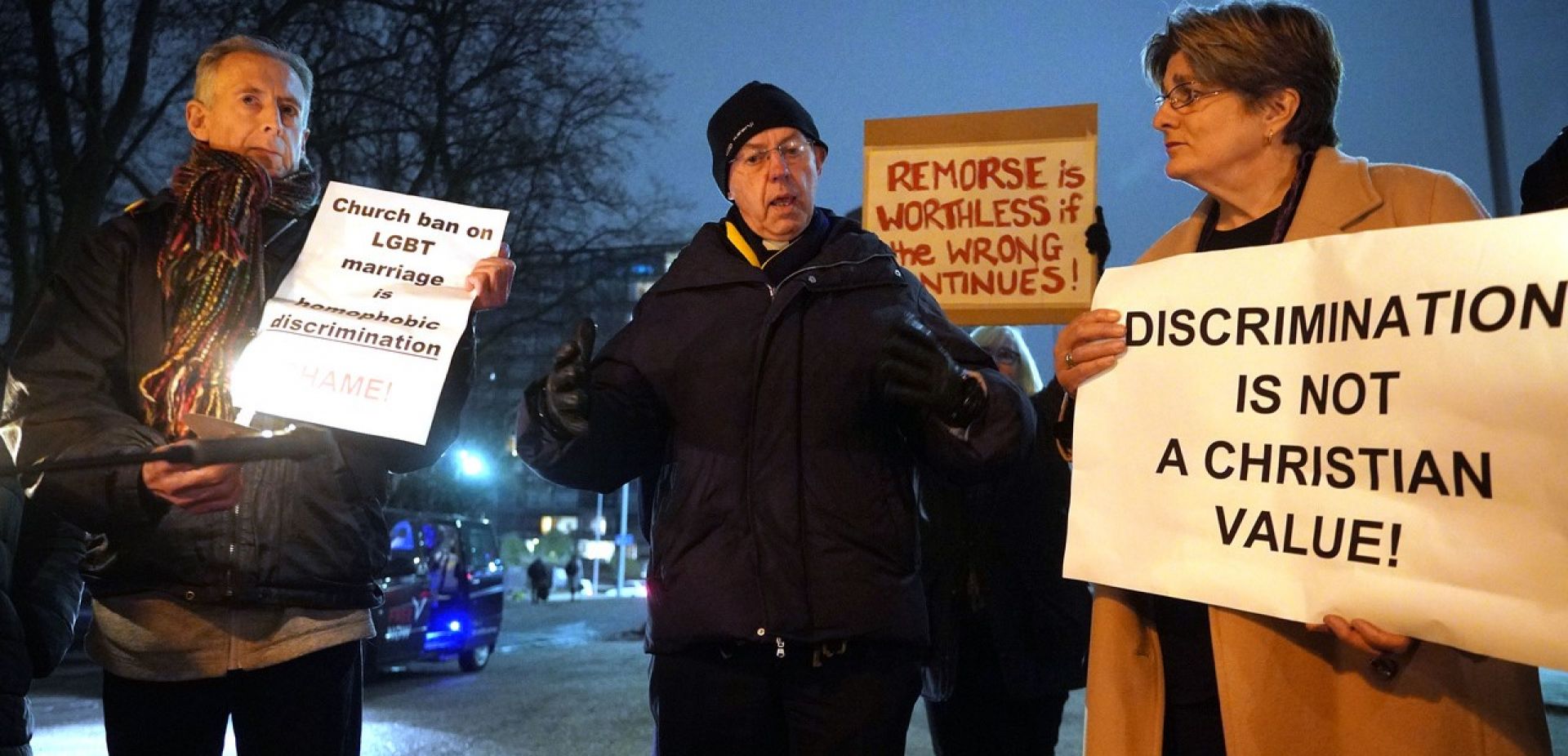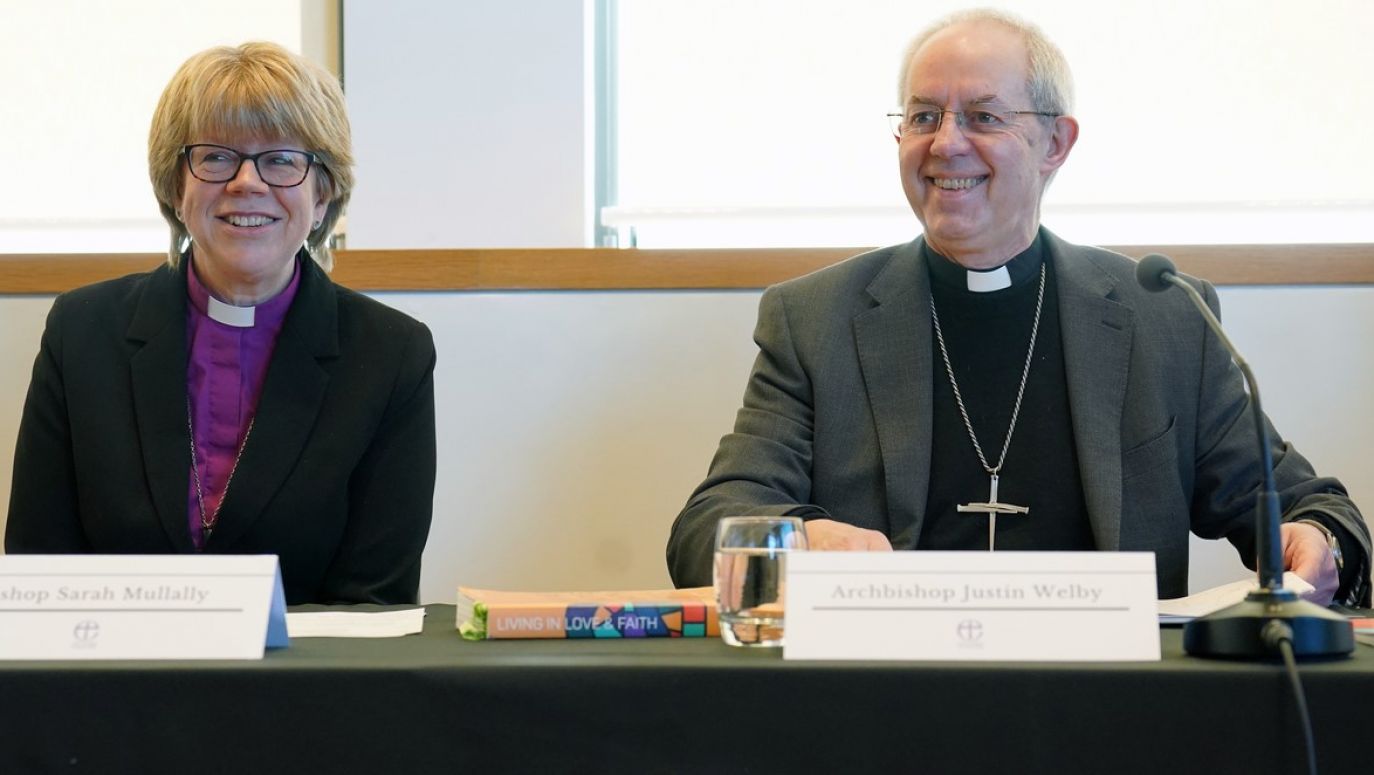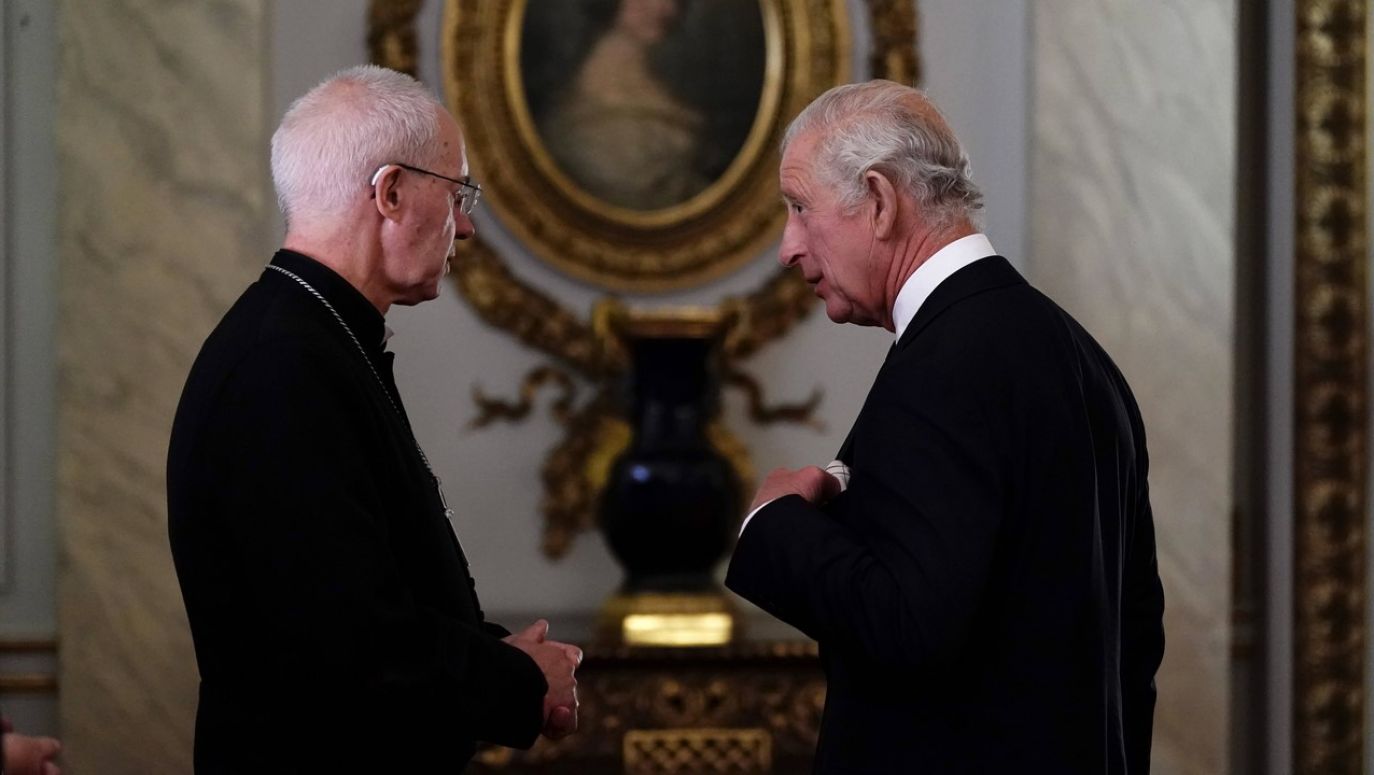With various results. Women, indeed, are now ordained as ministers, because even though the Church of England ruled such a move out initially, it was forced to relent under pressure from Parliament. However, it was the controversy about the proposed consecration of women as bishops that threatened to have the most serious consequences, since, as had been the case with the installation of the first homosexual bishop, it almost led to a split in the Church. That was why Pope Benedict XVI made it possible for Anglican male priests to convert to the Catholic Church, an offer that remains in place. A posting on the Church of England website dated September 2021, states that Jonathan Goodall, bishop of the Ebbsfleet diocese, did decide to take advantage of this opportunity.
 SIGN UP TO OUR PAGE
SIGN UP TO OUR PAGE 
Archbishop Justin Welby's declaration amounts to a preview, the outcome of six years of consultations on the issue of faith and sexuality under the rubric "Living in Love and Faith." This is expected to take effect once it has been approved following four days of what are expected to be tumultuous deliberations during the General Synod, which got undereway on February 6. No one believes the Synod would go against the decision of the head of the Church and support gay weddings, both for substantive as well as formal reasons. The decision, as the archbishop reminded the protest gathering outside Lambeth Palace, has to be approved by two-thirds of the members of each of the Synod's three chambers -- bishops, parish priests and laity.
The bishops themselves are divided to such an extent that it is deemed impossible to push through homosexual marriages. According to the Daily Telegraph, only one in three bishops is willing to accept the mover, a third is opposed, and another third remains undecided.
Synod participants will also consider the repeal of the 1991 sexual abstinence order for priests who live in a stable relationship with a partner of the same sex. The belief is that in this instance, the proposal will pass, although it is difficult to avoid seeing a certain inconsistency in this regard. The Synod is also to consider the formula of blessing for same-sex marriages and related prayers.
Pastoral, not canonical
It's hard to avoid the impression that the Anglican Church got into hot water on the issue more or less of its own accord. Protestant churches are modernizing -- and not in the best sense of the word -- by consistently accepting the changes brought about by new customs. By way of contrast, the Catholic and Orthodox Churches, withstand such changes, almost as consistently. Anglican churches found themselves in the middle, with some wanting to move on with the times, while for others rejecting the old principles is something unimaginable.
Although Archbishop Welby says that he approaches the idea of blessing same-sex unions "with great joy", he will not do so himself. He took this decision out of respect for the differences within the Anglican Communion. Given that his authority is only titular, the Archbishop of Canterbury has no power over the churches that make up the Communion. Nonetheless, his position at the head of the Church of England is not insignificant. "I have a pastoral responsibility to the entire Community," Justin Welby explained. "I will not take advantage of the new opportunities so as not to harm it."
This aspect is also emphasized by the holder of the second most senior position in the Church of England hierarchy, the recently appointed Archbishop of York, Steven Cottrell. Although he himself intends to bless gay couples, he told BBC radio on the day the decision was made that "the road we have just entered is pastoral and not canonical". It was, he noted, still "a milestone for the Church, although there is still a long way to go."


 SIGN UP TO OUR PAGE
SIGN UP TO OUR PAGE 






